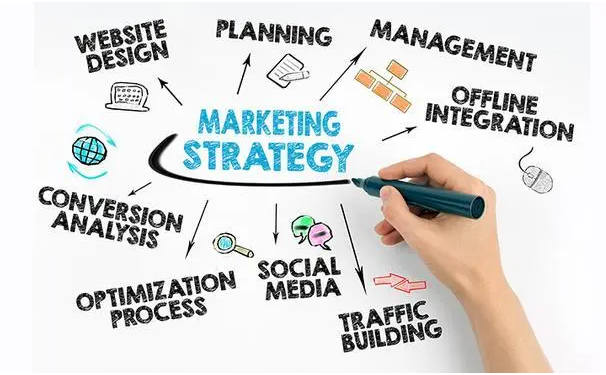Looking to take your small company to the next level? You’ve come to the right place. In today’s competitive market, it’s essential for small businesses to employ game-changing marketing strategies to stand out from the crowd. With the right tactics, you can attract more customers, increase brand awareness, and ultimately boost your success. In this article, we will unveil 10 highly effective marketing strategies that are tailor-made for small companies.
From social media marketing to content creation, we will explore a range of techniques to help you achieve your goals. These strategies are tried and tested, ensuring that you invest your time and resources in methods that deliver results. Whether you’re a startup or an established small business, these game-changing marketing strategies will help you gain a competitive edge and thrive in your industry. Get ready to supercharge your marketing efforts and watch your small company soar to new heights. So, if you’re ready to take your small business to the next level, let’s dive in and discover the 10 game-changing marketing strategies that will revolutionize your success.
1.Understanding your target audience:
One of the fundamental pillars of effective marketing for small companies is understanding your target audience. By conducting thorough market research, small companies can gain insights into the preferences, needs, and pain points of their potential customers. This understanding enables businesses to tailor their marketing messages and offerings to resonate with their audience, increasing the likelihood of engagement and conversion.
2.Developing a unique value proposition:
In a crowded marketplace, marketing for small companies necessitates the development of a unique value proposition. This involves identifying what sets your business apart from competitors and communicating it clearly to your target audience. Whether it’s exceptional customer service, innovative products, or competitive pricing, articulating your unique value proposition helps attract customers who align with your brand’s values and offerings.

marketing for small companies
3.Building a strong brand identity:
A strong brand identity is crucial for small companies looking to establish credibility and trust with their audience. Consistent branding across all touchpoints, including logo, website, and marketing materials, helps reinforce brand recognition and fosters a sense of loyalty among customers. Investing in branding initiatives that reflect your company’s values and personality can pay dividends in building long-term relationships with your audience.
4.Leveraging content marketing:
Content marketing plays a vital role in the marketing strategy for small companies to connect with their audience, build authority, and drive organic traffic to their websites. By creating valuable and relevant content, such as blog posts, videos, and infographics, small businesses can position themselves as industry experts and attract inbound leads. Additionally, content marketing allows businesses to engage with their audience on various platforms, increasing brand visibility and driving customer engagement.
5.Implementing search engine optimization (SEO) techniques:
In an increasingly digital world, marketing for small companies necessitates having a strong online presence. Search engine optimization (SEO) techniques help improve the visibility of your website in search engine results, driving organic traffic and generating leads. By optimizing website content, meta tags, and backlinks, small businesses can increase their chances of ranking higher in search engine results pages (SERPs) and reaching their target audience effectively.

marketing for small companies
6.Embracing social media marketing:
Social media platforms provide small companies with a cost-effective way to reach a wider audience, engage with customers, and build brand awareness. By leveraging platforms such as Facebook, Instagram, and Twitter, small businesses can create compelling content, interact with followers, and run targeted advertising campaigns to drive conversions. Social media marketing also enables businesses to gather valuable insights about their audience’s preferences and behaviors, allowing for more targeted and personalized marketing efforts.
7.Utilizing email marketing campaigns:
Email marketing remains one of the most effective channels for marketing for small companies to nurture leads, drive sales, and foster customer relationships. By building an email list of subscribers who have opted in to receive communications from your business, you can send targeted messages, promotions, and updates directly to their inbox. Personalized email campaigns tailored to the interests and preferences of your audience can yield high engagement rates and drive conversions, making it a valuable tool for small businesses.
8.Exploring influencer marketing opportunities:
Influencer marketing has become increasingly popular among small companies as a way to amplify their brand reach and credibility. Partnering with influencers who have a relevant and engaged following allows businesses to tap into new audiences and generate authentic endorsements for their products or services. Whether through sponsored content, product reviews, or influencer collaborations, small businesses can leverage the influence of trusted individuals to increase brand awareness and drive sales.

marketing for small companies
9.Measuring and analyzing marketing efforts for continuous improvement:
To ensure the effectiveness of their marketing strategies, small companies must regularly monitor and analyze key performance indicators (KPIs) to track progress and identify areas for improvement. By leveraging analytics tools and metrics such as website traffic, conversion rates, and customer engagement, businesses can gain valuable insights into the performance of their marketing efforts. This data-driven approach enables small companies to make informed decisions, optimize campaigns, and allocate resources effectively for maximum ROI.
10.Conclusion:
In conclusion, small companies can achieve remarkable success by implementing these 10 game-changing marketing strategies tailored specifically for marketing for small companies. By understanding their target audience, developing a unique value proposition, and building a strong brand identity, small businesses can differentiate themselves in the marketplace and attract loyal customers. Leveraging content marketing, SEO techniques, social media, and email marketing allows companies to expand their reach, engage with their audience, and drive conversions effectively.
Exploring influencer marketing opportunities and embracing data-driven analytics further enhances the effectiveness of marketing efforts, ensuring continuous improvement and long-term success for small companies in today’s competitive business landscape. With these strategies in place, small businesses can confidently navigate challenges, seize opportunities, and unlock their full potential for growth and prosperity.










